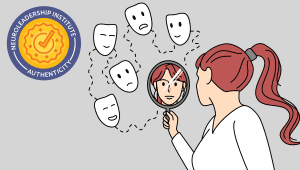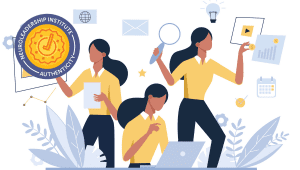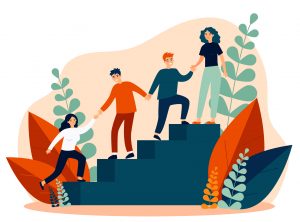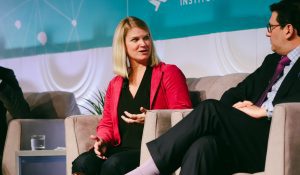
Why Corporate Jargon Is Bad for Business
Corporate jargon is annoying, exclusive, and confusing — so why do we keep using it?
Thank you for searching the NeuroLeadership Institute archives. Here’s what we were able to find for you.
Still having difficulty finding what you’re looking for? Contact us.

Corporate jargon is annoying, exclusive, and confusing — so why do we keep using it?

Nearly a decade ago, the NeuroLeadership Institute published an influential article titled “Kill Your Performance Ratings.” Here’s an update on what we’ve learned since.

NLI’s “Ask an Expert” debut dives into those aha eureka moments — and the neuroscience behind them.

Quality connections are key for building an empathetic workplace.

Being authentic means being vulnerable, taking risks, and talking openly about your weaknesses.

Anyone can develop mindfulness by focusing on direct sensory experiences — instead of thinking about the past, future, other people, or themselves.

Don’t miss out on the many upsides of candidates with “portfolio careers.”

Insights to help build a productive, collaborative, and connected hybrid workforce.

Workplace psychological safety can mean a variety of things. Here’s a primer on how to better understand it.

How taking a break from something and returning with a fresh perspective can lead to game-changing new insights.

Here’s why we should push ourselves out of our comfort zone at work.

Here’s why we should push ourselves out of our comfort zone at work.

Organizations are systematically undervaluing critical aspects of employees’ work by measuring only what’s easy to quantify.

Leadership naturally confers high social status — which can make workplace interactions threatening. A guide for leaders on how to manage status at work.

Organizations seeking to support their workforces should start with listening. It won’t erase inequity, but it can help us define what changes are needed.

The workplace is shaped by how people interact with other people. That’s where allies come in.

Colleges play an important role in bringing diverse groups together. As such, they should make it a priority to create a sense of allyship on campus.

Understanding the nuances between allyship and inclusion is important to helping your team act in everyone’s best interest, and correct past imbalances.

The data say leaders need to get more intentional about cultivating diverse talent. The science of allyship and inclusion can show us how.

For over two years, Microsoft has been on a journey of cultivating allyship in its leaders and employees, and CDO Lindsay-Rae McIntyre has led the charge.
Join millions of employees in creating culture change at scale by reaching out today.

In 2007, David and Lisa Rock and their team had been working in leadership development and executive coaching for ten years, when David coined the term “NeuroLeadership.”ef

North America
Africa
South America
Asia
Europe
Australia
© NeuroLeadership Institute 2025. All Rights Reserved
This site uses cookies to provide you with a personalized browsing experience. By using this site you agree to our use of cookies as explained in our Privacy Policy. Please read our Privacy Policy for more information.